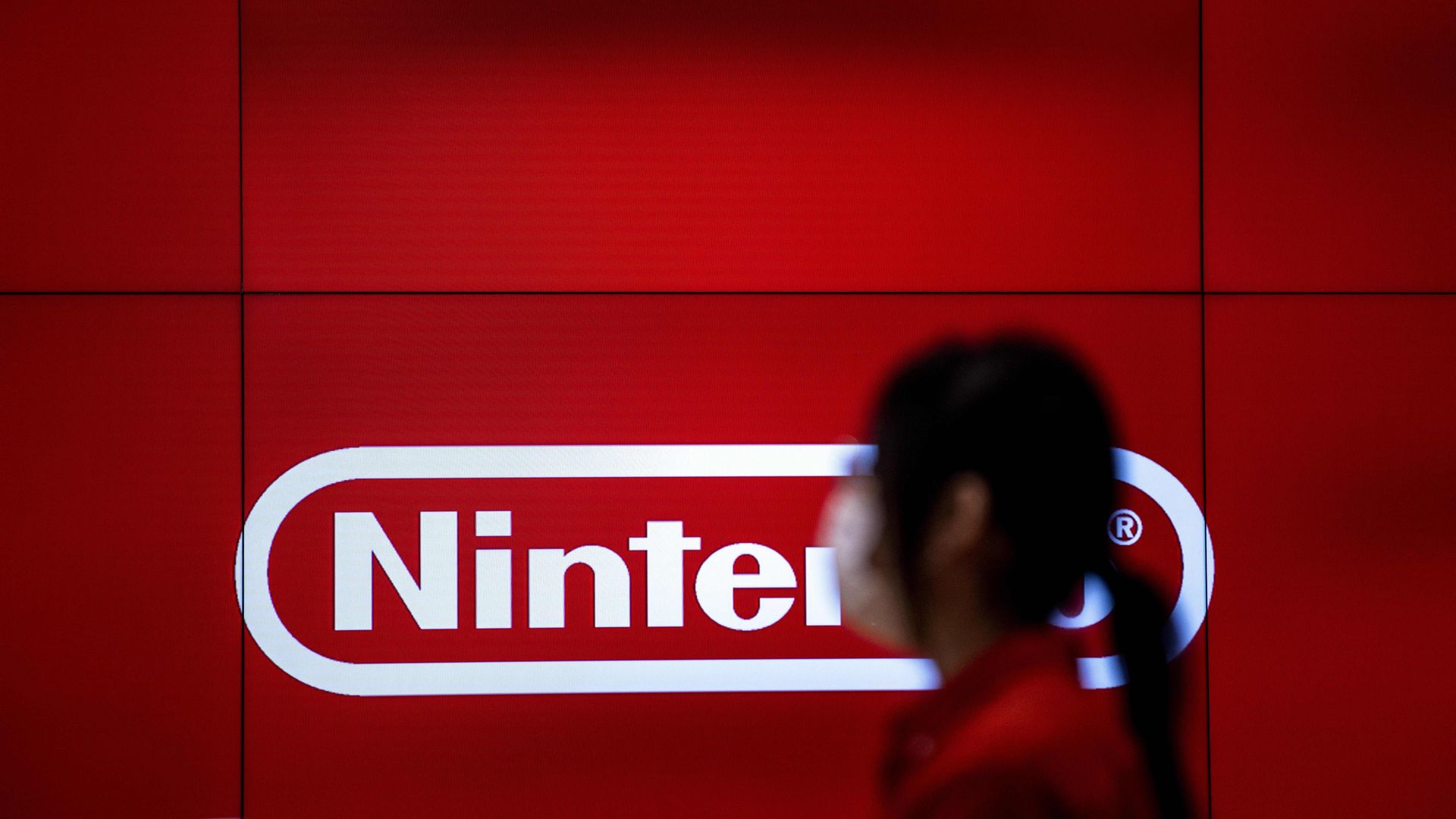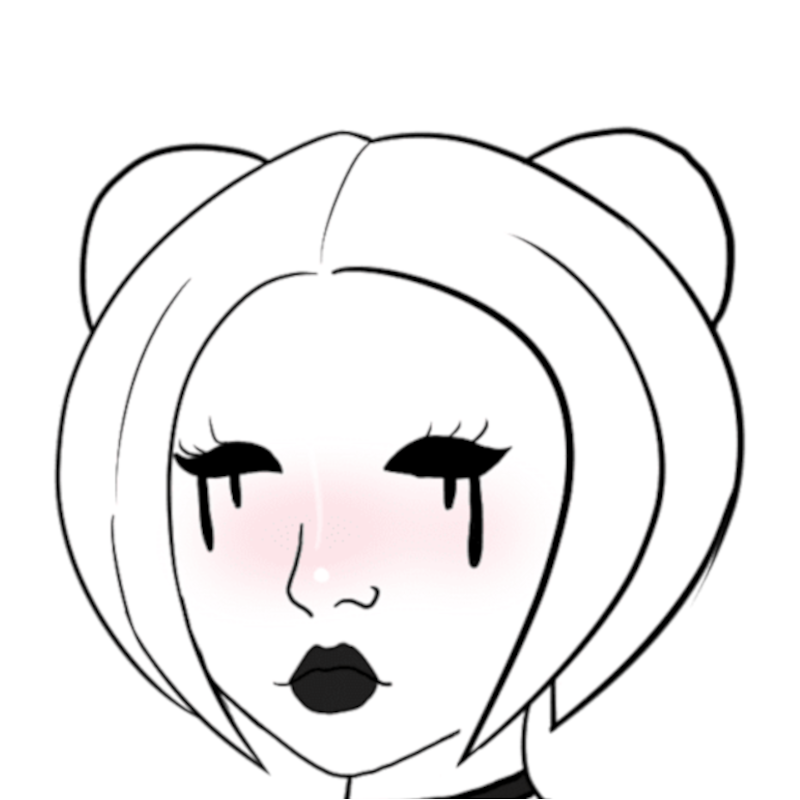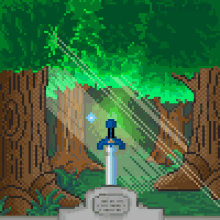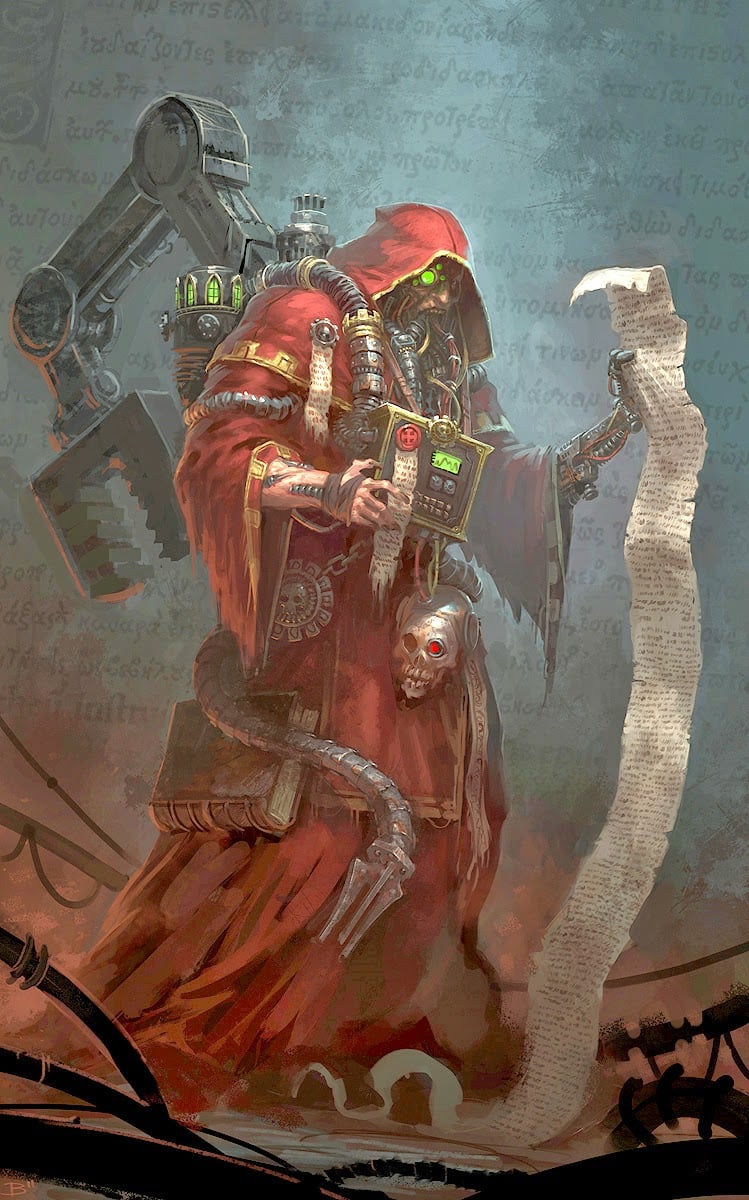I love long complicated games, like breath of the wild, but I think the world also needs more concise games, those 20-40 hour masterpieces that keep you wrapped up without having to memorize 3600 pages of back story to remember where you left off.
What the studios (especially Nintendo) don’t understand is you can’t charge the same ~$60 for both games. People don’t hate shorter simpler games, they just hate paying the same price for less content.
Right now, Nintendo is selling the Switch version of Link’s Awakening for only $10 less than TOTK ($60 vs $70). That’s right, a remake of a 20+ year old game with a pretty limited story is selling for almost the same as the largest most complex and expansive game Nintendo has ever produced.
I don’t know why they’re so fixated on matching prices between games that took orders of magnitude different amounts of effort to produce.
the world also needs more concise games
Yeah!
those 20-40 hour masterpieces
…wait, concise?
Its not just Nintendo, fifa/whatever their new name is sells for 70€ (basically same in usd) every year and is almost 90% copy and paste content.
Oh definitely agreed, just picking on Nintendo because that’s what the post is about
Yeah, Nintendo at least put some afford into half their stuff. Others just literally don’t and want the same money.
Im basically a Nintendo hater but in that regard Nintendo is among the best of the big.
This is a industry wide shitshow and most publishers should go to hell for what they do to the studios and customers.
Yeah, bit they sell less and less these days. I think one FIFA was on PS+ about 18monyhs after release. The most recent one was less than a year. They can only milk so much.
“And games will be less fun of course”
Has Nintendo slipped in quality? Their practices aren’t the great, but when it comes down to it, they have some of the most consistently high quality games.
They also have some of the longest tenured pros of game design and programming in the industry in its entirety… something sadly far more rare outside of Nintendo… but especially Japan.
Shigeru Miyamoto, for example, has been designing at Nintendo for literally 4+ decades at this point.
Turns out you can master a craft after doing it for a majority of your adult life.
But - in the US at least - the executives at publicly traded game companies would rather shut down literal smash hit dev studios like the guys who made Hi Fi Rush than cultivate a few master class devs of their own over a few decades…
I thought BotW was pretty mediocre. They basically took the “bigger and better” strategy to one of their iconic games and made it “bigger and worse.”
It’s an unpopular opinion apparently, but that’s my take. Hopefully it’s notb the start of a trend of Nintendo following other AAA studio trends.
BotW was my favorite gaming experience of all time. Hours and hours of joy for me.
Eh, it was the worst of the Zelda series for me. To each their own I guess.
You already explained you don’t like it. But your anecdote and my anecdote cancel out the anecdotes.
Ok? Convinced yourself yet lol
Convinced myself of what?
Mario wonder sucked
There’s one thing they did right that most other open world games do wrong: The map starts blank and it fills in as you explore. Others in the genre, you’ll Ubisoft that tower and then it fills in with all the icons of things to do here, so now follow the minimap to them all. In BotW, you Ubisoft the tower, you get the topology map, and now it’s up to you to find stuff in it, and when you do you get an icon on the map telling you you’ve done it.
I’m pretty sure the Rito quest wasn’t complete in time for launch so they had to rush to throw something together. The Hebra region is distinctly empty, I’m sure we were going to have to go on an arctic adventure to find Teba’s favorite cuttlefish bone or something, but they didn’t have time to finish it because the Switch was coming out so they said ‘Fuck it, build something that runs and ship it.’
There isn’t much variety in the enemy types, a lot of encounters are monotonous, a lot of the systems are so basic that they’re easy to break, and they were so afraid of telling a story out of order that the game doesn’t have a story of its own; “Link fucks around all over Hyrule for awhile then decides to defeat Ganon.” Meanwhile it tells you a different, somewhat related story.
Then there’s TotK, which they tried to make a sequel to BotW out of BotW’s bones, and it didn’t work as well.
Fair, they succeeded by not screwing up. It’s really not much different to show a thing on a map based on proximity vs collecting a McGuffin.
Then again, I actually appreciate AC showing me all of their nonsense because they don’t reward exploration. Every street looks samey (at least in the games I’ve played), and traversal on rooftops is more fun than at street level anyway. That’s not an issue in BotW because the map is so empty that it’s easy to pick out the interesting bits.
BotW is a pretty decent open world game, I just think it’s a solution in search of a problem. I don’t really like open world games, but if that’s the best way to tell the story, I’m fine with it, so I’ve played my fair share (I loved GTA: SA, GTA IV, Morrowind, Red Dead Redemption, and a few others, where “open world” really fits). That wasn’t the case for BotW, not even a little bit. Pretty much every Zelda game has exploration and “stranger in a strange land” type feel, yet they’re able to weave together a sensible main quest with interesting dungeons. In BotW, they’re like, “defeat ganon. If you don’t wanna, you can defeat ganon in these divine beasts first. It’s just ganon all the way down.”
I think at least part of Breath of the Wild’s design comes from Nintendo listening to their fans. I think Nintendo genuinely does listen to their fans, especially regarding the Zelda franchise. But they’re also Japanese and thus anatomically incapable of doing anything halfway. After Wind Waker, they heard fans say they wanted a darker, more adult Zelda game, and then they published Twilight Princess. All games published after Ocarina of Time strictly prevent sequence breaking, and players said they wanted a less linear game and have some choice in which order they do things.
Nintendo responded with the least linear game in history. The Legend of Zelda: Breath of the Wild will walk into your bedroom at night, hold you down, squat over your face and non-linear right in your mouth. It’s not so much that you’re allowed to do things out of intended order, but they went to excruciating pains to make sure there IS NO intended order. In the few places where NPCs list the divine beasts, the past champions, their modern day counterparts, their races, their villages, or the biomes they’re found in, they’re never listed in the same order twice for fear of establishing a “canon” order. And virtually all of the game is optional, the tutorial and the final boss are all that is required.
What the fans were saying was “remember when I was playing OoT, and I decided to do the water temple before the fire temple, and it totally worked? Good times.”
for fear of establishing a “canon” order
Which is hilarious because TotK completely broke “canon” by having NPCs completely not mention events from the previous game. Nintendo is really weird about things sometimes.
TL;DR - lol
Players have remarked in some cases on the lack of in-universe explanations for some of the changes to Hyrule. Notably that the Sheikah Towers and Guardians which were a central part of the Breath Of The Wild have disappeared entirely. Nintendo has its own internal explanations about what happened: “They disappeared after the Calamity was defeated (sealed),” Fujibayashi explains. “All of the people of Hyrule also witnessed this, but there is no one who knows the mechanism or reason why they disappeared, and it is considered a mystery. It is believed that since the Calamity disappeared, they also disappeared as their role had been fulfilled.
“It is, anyway, commonplace for mysterious events and strange phenomena to occur in Hyrule,” he offers, mischievously. “Thus, people have simply assumed the reason behind the disappearance to likely be related to ancient Sheikah technology and it seems there is no one who has tried to explore the matter further. The main civilizations in Breath of the Wild and Tears of the Kingdom are completely different, so we thought about the game based on concepts that match each of these civilizations.” The short answer? Don’t worry about it.
Honestly, I don’t understand why people care so much about non-linearity. My favorite Zelda games are completely linear: A Link to the Past, Skyward Sword, Link’s Awakening. I did OoT linearly as well, because that made sense to me. Yeah, it’s cool when you can do things “out of order,” but there should absolutely be an intended order so things are interesting (no difficulty spikes, interesting use of items, etc), perhaps with some easter eggs if you hack around it. I think that’s what fans wanted. BotW loses that, and the result is that you don’t really have much interesting interaction between set pieces.
Then again, BotW and TotK were super successful, probably because they attracted a ton of people who don’t normally like Zelda games, because it’s not really a Zelda game, it’s a Zelda-themed game. BotW feels more like *Assassin’s Creed: Australia edition" than a Zelda game (lots of nothing, find random stuff, then fight a random, same-y boss; continue until a big, disappointing fight).
I usually feel accomplished after finishing a Zelda game, but getting to Ganon was harder than the actual fight, I didn’t need to use any of my abilities, and the second phase was laughably easier than the first, so I largely left disappointed. It’s like they tossed it in last-minute and shipped it, instead of giving actual thought to it. When people ask me what they need to prepare for the Ganon fight, I just say, “lots of shields.” That’s it.
A Link to the Past is not completely linear; once you have the hammer from the Palace of Darkness, you can choose between the Swamp Palace, Skull Woods or Thieves’ Town, and Thieves’ Town unlocks the Ice Palace and Misery Mire. Granted, the game tells you what order to do them in, but you are occasionally free to choose otherwise. Not so in, say, Twilight Princess, which is extremely flaggy.
I do think that TotK was very sloppily handled. On the one hand it’s an amazing piece of software, that the physics systems they made actually…work. I’ve seen them take flak for re-using BotW’s map, which I don’t mind. The thing is, they did it very hamfistedly. In BotW, it makes sense that no one knows who you are because you’ve been in stasis for 100 years, there’s only a handful of people alive who recognize you. In BotW, you’re an interloper. TotK seems to take place 6 years after BotW (Given how some of the children like Nebb and Riju have aged, Bolson/Rhondson having a ~5 year old daughter, etc, plus that’s the time between the games’ release dates) and Link has been living and working in Hyrule this whole time…except he apparently hasn’t. Zelda seems to have appropriated the house in Hateno Link bought, so where does Link live? Too many people outright don’t recognize him when they see him. It feels like they wanted to make a clean-sheet game and not a sequel.
Frankly it also feels like any idea anyone came up with ended up in the game. “Let’s have a cavernous underground.” Okay, the lazy way to make that is to invert the terrain map of the surface which doesn’t make logical sense, and then do extremely little with this very large environment. “Let’s have islands in the sky.” Okay, here’s some cookie cutter islands floating in the sky that are difficult to reach and traverse with large expanses of emptiness and the ability to make flying machines that don’t last long enough to actually move around. “How about a sidequest where an NPC asks Link to put some wheels on a cart for her? I’ve already written 90 pages of related dialog.” Yes, put it in the game completely unedited.
deleted by creator
Anyway…Have y’all tried Animal Well?
It’s on my list. Finishing inscryption first. Is it good?
I’m only an hour in, but I’m getting masterpiece vibes
That’s awesome to hear. I’ll have to check it out
It has never been easier to make A Game. The only thing getting harder is meeting shallow expectations imposed by empty suits. What a small team can accomplish in a few months keeps expanding, and unless you chase some zillion-dollar trends, what they can do is plenty.
Shareholder puppets like Microsoft should figure this out - they demand instant turnaround. They own enough studios to have several of them try cranking out six games in two years. If you want it to happen faster, use fewer people. I dunno, build a friggin’ pipeline for indie devs to slap together a killer idea that gets fixed-up, art’d, and polished by different teams. Then you can sell more things to more people for more chances to trip into a brand new trend. You don’t have to perform ritual sacrifice when a decade-long project makes a shitload of money! You can still get angry when the actual profits are less than the number you made up in your head! Just-- put money behind cool things that cost $20, instead of constructing situations where people have to spend $140 each or you lose. It’s like a fuckin’ Mad TV skit. Spend less, sell more.
There are too many breakout indie hits developed by one person or a small team that prove this isn’t true across the industry.
AAA development may be that way because there are higher expectations, just like blockbuster movies invest heavily in special effects and A-list celebs. But at the end of the day gamers just want to be entertained.
I think that one could also say something similar about Hollywood, though there maybe I’d agree that scale is more important.
Terminator II was, for its time, pretty expensive. I’d be sad to not have Terminator II – it was a pretty good movie.
But Twelve Angry Men is a pretty good movie too. It has essentially no special effects. The costumes are mostly everyday business casual. Most of the movie takes place in a conference room, with a very small part in a courtroom and a bathroom. I don’t know what its budget is, but it has to be simply tiny in comparison.
Exactly! I especially like your point about T2. I don’t think it’s wrong to put a lot of money behind a AAA game, but there needs to always be a balance weighted toward the creative/entertainment value (whether it’s innovative game mechanics or story driven).
Once that balance shifts to the business side by focusing on recouping the investment is when a project is at risk for not being received well.
I think all gamers are ok with studios making a profit on their games, but don’t try to fleece us.
What he’s saying is that major studios are locked playing chicken with each other, and that the industry is going to remember the 1983 crash fondly in comparison with what’s going to happen.
We have to go back
“I want shorter games with worse graphics made by people who are paid more to work less and I’m not kidding 😎”
Indie games are kind of this, but it’s hard to make the “paid more” work consistently at scale. Largely because there’s a shitload of people making really good indie games and I can only play so many of them.
I think in this context the original poster was lamenting the loss of AA gaming.
Fitzsimmons actually got it even better than my kind of brainless appeal to nostalgia. That’s what I want
It doesn’t have to though. Tools are so easy to use now and the gaming industry will never have a shortage of people trying to get jobs in it, there is no reason that so many games need to be spending 5+ years in devepopment.
Have you ever worked on a game?
Yes, I have. A small team can launch a small/medium size game in less than two years using current tools. Game jams, albeit almost never ending up with complete games, last for usually one week and the end result is basically a vertical slice of a game nearly always built by a single person.
Again, there is no reason a game spending 5+ years in development should be considered average or normal.
Even in the past, AAA studios could complete successive games in a shorter amount of time. Metroid Prime 2, Star Wars Battlefront 2 (the good one from 2005), and Legend of Zelda Majoras Mask were all developed by reusing code and assets from the games that came before them, and game development tools were not as easy to work with then as they are now. Metroid Prime 1 was developed in 3 years, Ocarina of Time was developed in 3 years, and Battlefront 1 was developed in 2 years. All of these were developed with AAA funding and took less than 5 years on tools with less accessibility than modern tools.
Some of the games I like the most – some roguelikes fit into this camp – had very small teams working for a long period of time on a game, spending a long time iteratively refining the gameplay.
I’m not so sure that I prefer the “wide” model of many people for a short period of time versus a few people for a long period of time. Certainly there are things that the “narrow” model can and has done well that the “wide” model hasn’t.
Among the games I’ve recently played and enjoyed:
- Nova Drift
- Rule the Waves 3
- Dominions 6
Those are all one- or two-man efforts.
I also like some games with much larger teams, but I’m not sure that things are simply getting bigger.
They’re definitely getting bigger, but not with anything meaningful. I’m playing through Cyberpunk 2077 and it definitely feels like a lot of the side missions are unnecessary filler to pad out an excuse for the major names they got involved. I’m guessing other AAA are the same, “we need to do more than last time” whether it’s impactful to the story and experience or not.
You look at the credits to a lot of games these days and notice that the vast majority of people are in the various art departments or management with, like, 3 people programming it all and the same or fewer people in QA. And it can take upwards of an HOUR to get through all the credits because there are THOUSANDS of people working on it.
Small teams deliver more concentrated quality, IMO.
I don’t know if I can reduce it to the programmers making the game, though. Like…yeah, the most-replayable games I’ve played rely heavily on the code, and less on the assets.
But there are also games where the art is pretty critical that I enjoy. Like, imagine games in the Myst series without the art and sound. Like, none of the code is particularly impressive. The puzzles are…okay, I guess. You play a game like that for the art and sound.
Or Lumines. I mean, yeah, they had to get the gameplay loop right, but technically, it’s a very simple game, just a falling-blocks game. But the audio and to a lesser degree, the appearance, is important.
https://www.youtube.com/watch?v=bboWlUppp-s
Rez is maybe a little fancier codewise, but it’s just a rail shooter. It’s really about experiencing the art and music.
https://www.youtube.com/watch?v=gZLHB5e90pU
And I definitely did enjoy those. In the case of the latter two, those were not AAA games, didn’t have huge teams creating assets, but it was still really the assets that made the game.
Here is an alternative Piped link(s):
https://www.piped.video/watch?v=bboWlUppp-s
https://www.piped.video/watch?v=gZLHB5e90pU
Piped is a privacy-respecting open-source alternative frontend to YouTube.
I’m open-source; check me out at GitHub.
deleted by creator
how about no?
deleted by creator
Antici
phistication 😎
Just as long as they don’t hop onto the procedurally generated bandwagon. While I appreciate the attempts at making unique gameplay while focusing less on level generation, those types of games end up making me feel like a hamster on a wheel.
I think that many roguelikes or Minecraft wouldn’t really work without procedurally-generated worlds, and that they work fine there.
I think that it’s more that procedurally-generated world still isn’t a substitute for handcrafted world. You can’t just get infinite handcrafted world for free with procedural generation.
A roguelike without procedural generation is like Tetris where the order of the pieces is the same every time. Some roguelikes let you save the seed and replay the same run but this is generally referred to as cheating and done for recreation/research purposes, not for seriously attempting to win the game.
I agree that generally the two are linked, but to nitpick, there are some roguelikes – games that I would call roguelikes, at any rate – where the world is to greater or lesser degree hand-crafted.
ToME 2, as I recall, did have a procedurally-generated underworld, but a more-or-less hand-crafted overworld. Been a long time since I’ve played it, though.
Caves of Qud has a most of the underworld being procedurally-generated, and has many individual overworld maps being procedurally-generated, but the overworld map tiles and many individual overworld maps and some underworld maps are static.
But my point is more just that I don’t think that it’s right to say something like “procedural generation of worlds doesn’t work”. I mean, there are games where I think that procedural generation of worlds works, and works well. It’s just that we haven’t hit that Holy Grail where humans don’t have to handcraft worlds for games that rely on handcrafted worlds any more, where the procedural generation engine can just make as much handcrafted-like world as one wants for no cost.
I think that for roguelikes, what makes it work is that rely on creating different, well, tactical scenarios via randomization. Like, you have to play differently based on the environment you’re in, and so random generation gives you a stream of unknown environments so that each session is mixed up.
For many traditional games, where the point is exploration or story…we don’t have procedural generation that can make interesting plot and characters yet. Maybe we could make aesthetically-pretty procedural worlds, but we don’t have software that can generate stories with characters and plot events that we emotionally care about even remotely as well as humans can. Maybe LLMs or something are a tool that can help us get there, but we’re not there in 2024.
I don’t know what exactly makes procedural generation work for Minecraft. I guess it affects how one plays. It’s more-or-less irrelevant from a tactical standpoint, the combat doesn’t change up much, but it affects what resources one has, what problems present themselves, what constraints are imposed on how one has to build and act. Maybe games like Dwarf Fortress and Oxygen Not Included and to some extent Cataclysm: Dark Days Ahead, all games with procedurally-generated worlds, would fall into that camp. Starbound. Terraria.
Funny you should bring up Caves of Qud. That game is pushing the envelope in terms of procedural generation. They want to do a ton of the world building and background stories with procedural generation while leaving the main plot hand-crafted. They also do a really fun procedural detective story with one of the quests, so the clues and evidence you find when investigating the crime are different every time.
I think a lot of the fun of that game is with exploring the procedurally generated environments and doing the random quests. There just needs to be more research into generating branching plots and simulating events, with chains of causality. Dwarf Fortress does a lot of this in its world generation, for example.
I think what works for Minecraft is the spatial nature of the game. Procedural generation gives the player a new environment in which they can role play as an architect and engineer. While nothing stops you from building exactly the same structure every time — block for block — it’s more fun to design your structures into the landscape itself, like a real architect would! The same goes for Daarf Fortress and the like. It scratches an engineering/managerial itch.
Starfield got a lot of flak for using procedural generation which was technically impressive but…it’s a game that doesn’t really benefit a lot from it. Like, the player doesn’t need to do much to adapt their gameplay to the procedurally-generated environments. It mostly just provides aesthetic variety.
I wonder…like, roguelikes have tactics that rely on the environment. If someone were to go and mod Starfield such that the tactics in the game relied on the environment a lot more, that might be interesting from the game’s shooter side. Like, say someone got the ability to morph into something that could slide through pipes, or there were enemies that could walk up magnetic surfaces, or water had a meaningful role (it did in Fallout, with the Aqua Boy perk). Maybe have vehicles or enemies that can only travel on certain types of terrain. Get the ability to lock doors. Right now, the procedural environments are just outdoors, but if it included indoors, maybe stuff like the ability to leverage with electrical systems or lighting. As it stands, the only things that really affect tactics is the availability of cover and the ability to climb on something so that some melee-only enemies cannot reach someone. The environments are basically just eye candy, don’t really create different gameplay problems for the player.
Or from the base-building aspect. If, for a given outpost, the resources became a lot-more significant, so that a base really had to be designed around the limitations imposed by the environment. Like, I don’t know. Temperature of a given piece of equipment, taking shade into account. Being able to make use of hydropower off waterfalls. Some machines having outputs that create more issues that the player has to deal with, kinda Oxygen Not Included. Designing a defensible base being more-important.
As it stands, the layout of a given base is virtually irrelevant aside from choosing a base location that has a circle that contains a given amount of easy-to-build-on flat ground and as many different types of resource as possible. Like, Bethesda built this whole fancy landscape-generation engine, can create a huge variety of realistic-looking environments, but didn’t really do much with it in terms of gameplay.
I agree on Minecraft. For that play style, it works.
Oh no they would have to finish games before selling them for 70 to 100 bucks? Naaaah. They won’t. Big gaming is just about money nowadays.
Because they ban us from changing the source code: that’s what they won’t tell you.
What does one have to do with the other?















